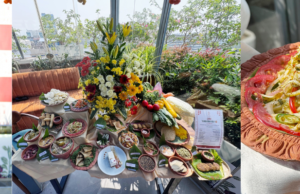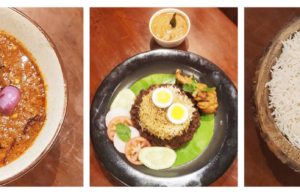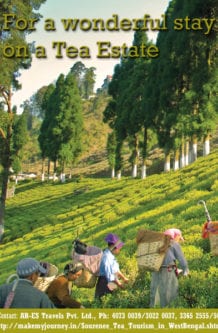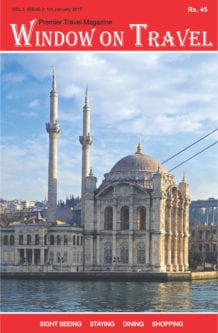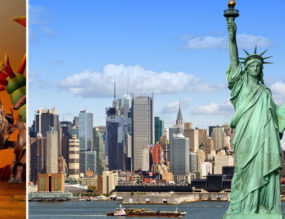
WoT's Hot
In the last twelve months, we carried on with business as usual despite the heat wave that struck many parts of Europe, the raging California fires, the Amazon being burned and the wild fires that have ravaged huge tracts of forest in Australia and pushed more than 100 species to the brink of extinction. Until now – as the Corona virus is spreading from a wildlife market in Wuhan, across the world, seeding panic and insecurity in its wake. And life as we know it slows down, many of us have had no choice but to hit the pause button. What can this moment of reflection amidst pandemic teach us about ourselves, our communities, and our increasingly interconnected global market practices? This is a time to slow down, re-center and reflect on how we can be more mindful of our consumption. Beyond responding to this crisis by hitting the pause button, we have an opportunity to hit reset.
The spread of the Corona virus has already roiled Asian and global markets and oil prices have plummeted. Events, large and small, are shutting down. Global tourist and entertainment industries are nose-diving. Businesses have no clear plan on how to prepare for what may unfold. Governments are muddling their way through the crisis and borders are being shut with xenophobic and racist sentiments across nations broadly displayed.
At the level of trade, air and seaports, we are intertwined. Clearly what happens in a single marketplace can rattle the fragile economic and governance systems currently in place. The ways in which people interact are being redesigned – for example most non-essential travel banned with myriad meetings shifted, where possible, to on-line platforms.
We have a collective opportunity to live on this planet with respect for other life forms,and review our relationships with the environment especially the air and the water, and with one another. With air travel significantly reduced,meetings and large gatherings called off, institutions have had to experiment with new technologies and migrate to virtual platforms to carry out their daily work, the Earthgasps for breath and breathes a little deeper.
Motivated by fear, we are learning the hard way that we can make drastic shifts in the way we run our economies and institutions and manage to continue functioning in this moment of crisis. Clearly this slowdown in our use of fossil fuels must be the new normal if we are to survive on the Planet. We must depend less on global markets and cultivate local ones.

The pandemic should also make us question our relationship with animals and plants. While wild animals are used in many parts of the world for medicinal and other purposes, risking the passage of virus from animals to humans, China knows it must regulate these markets. We must question the sustainability of industrial farming and animal husbandry we have created systems that treat animals with great cruelty for us to consume more animal protein. As new technologies irrevocably demonstrate that plants sing, and trees assist one another through their intricate root systems in times of catastrophe, we must change the ways in which we operate in this “circle of life.” In doing so we will thrive along with the bounty of the world and all living organisms in a way that is not only more equitable but richer for us all.
Rather than scrambling to secure our borders, keeping foreigners out, rushing to gather up as much as we as individuals can so we are “stocked”and “sorted” during a lockdown, we need to be mindful of the situation of others and the ways in which we manufacture scarcity.
We need to find ways to work together as nation states and communities and individuals to do the long-term, paradigm shifting work to reduce the many man-made risks we have created that get hyper-circulated in an intertwined but increasingly unequal world. Where communities and countries have weakened health and other regulatory systems, no individual or country is safe, no matter how powerful. Our wellness is contingent on the health of others who are continents away. Just as the environmental footprint of the wealthy jeopardizes the health of all, especially the most vulnerable, so do poor health systems and unregulated markets around the world jeopardize our individual and global collective health.
Climate risk is compelling investors to reassess core assumptions about modern finance realizing that it is imperative to shift to a low carbon economy.The younger generation are demanding more concerted solutions to climate change and protection of biodiversity. We need to all be part of making a shift in our planetary consciousness. This crisis is another wake-up call.
Banner Left: blog.zoom.us; Banner Center: Bloomberg.com; Banner Right: boomlive.in
In the last twelve months, we carried on with business as usual despite the heat wave that struck many parts of Europe, the raging California fires, the Amazon being burned and the wild fires that have ravaged huge tracts of forest in Australia and pushed more than 100 species to the brink of extinction. Until now – as the Corona virus is spr
Other Articles in Wots Hot
What to read next
Featured articles

Welcome Festive Season in Glam, Latin Quarters Launches new #PujoBling Collection with Monami Ghosh
by WOT




